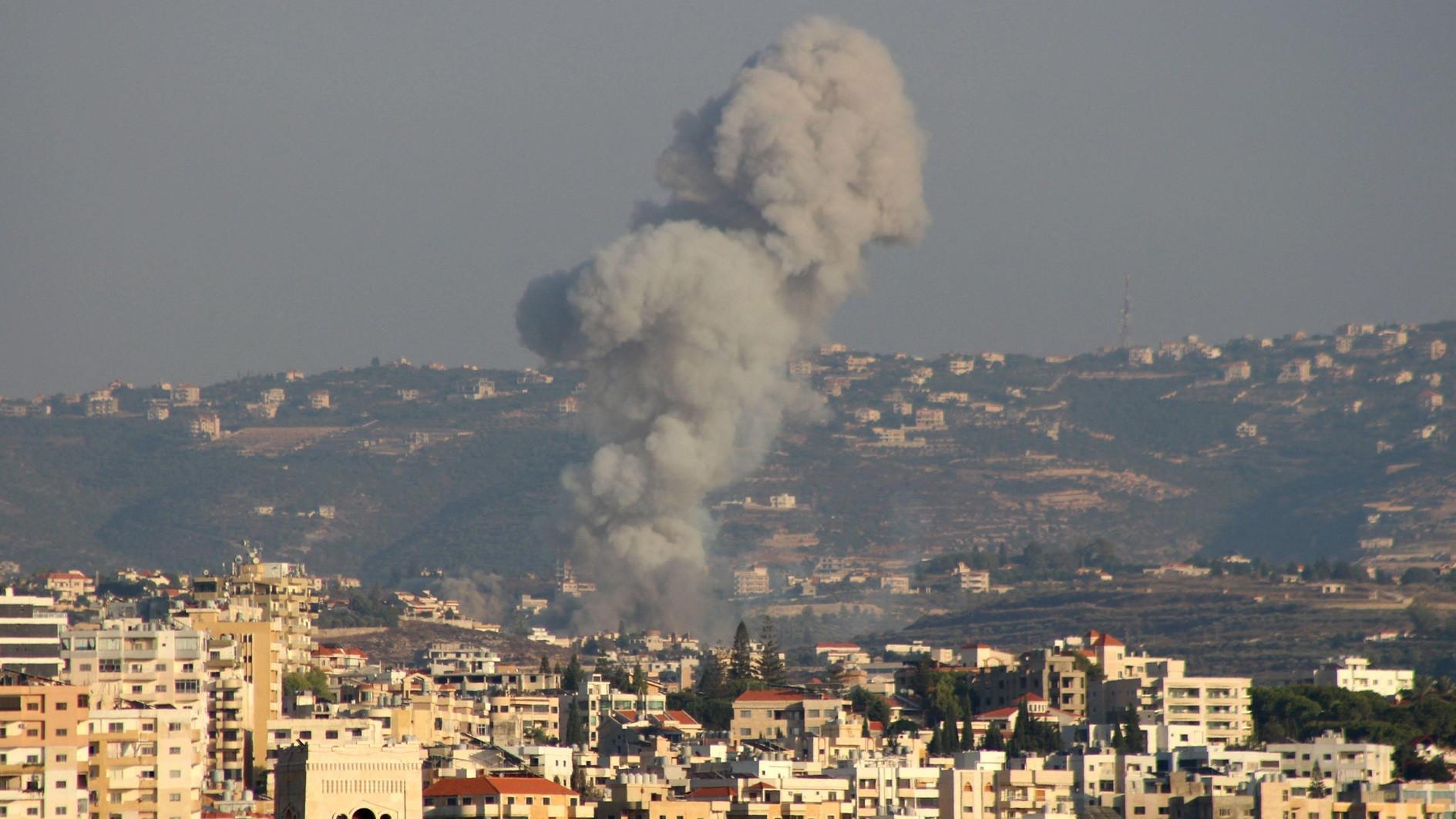
Israeli warplanes pounded villages in south Lebanon for a third day, Lebanese media reported Wednesday, while Israel said it intercepted a missile fired after sirens sounded early morning in Tel Aviv.
Lebanese officials said hundreds of thousands of civilians have fled their homes in the south this week to avoid fighting between Hezbollah and the Israeli military.
Lebanon's official National News Agency said Israeli warplanes launched raids on multiple towns in the south from 5:00 am (0200 GMT), adding "casualties were reported" from other strikes overnight.
The United Nations Security Council said it will hold an emergency meeting on the crisis in New York Wednesday, while U.N. Secretary-General Antonio Guterres warned the situation was critical.
Hundreds of thousands of people have been displaced since the latest round of fighting began Monday, officials said, some crossing the border to Syria to flee Israeli bombing.
Thuraya Harb, a 41-year-old housewife at a makeshift centre for displaced families in Beirut, said her family fled "with nothing but the clothes on our backs".
"I didn't want to leave my home, but the children were scared," the mother of four said.
Longtime foes Hezbollah and Israel have been locked in near-daily exchanges of cross-border fire since Palestinian militant group Hamas launched an unprecedented attack on Israel on Oct. 7.
The Hamas attack sparked a war in Gaza that has drawn in Hezbollah and other Iran-backed militants from across the Middle East, including Yemen and Iraq.
Lebanon said Israeli strikes killed at least 558 people on Monday — the deadliest day of violence in the country since its 1975-90 civil war.
Lebanese Health Minister Firass Abiad said the "vast majority, if not all" of those killed were unarmed civilians in their homes.
Israel's military said Wednesday it intercepted a missile fired from Lebanon after sirens sounded in Tel Aviv.
"Following the sirens that sounded in the Tel Aviv and Netanya areas, one surface-to-surface missile was identified crossing from Lebanon and was intercepted," a military spokesman said.
Rocket commander killed
Hezbollah claimed 18 attacks on Israel on Tuesday, while the Israeli military said the Iran-backed group fired about 300 rockets across the border.
Hezbollah also confirmed an Israeli claim that it had killed their rocket forces commander Ibrahim Kobeissi in the strike on the Lebanese capital.
Early Wednesday, a Lebanese security source said a new Israeli strike hit the Saadiyat area near Beirut, with a "warehouse" targeted.
At the U.N. General Assembly in New York, Secretary-General Guterres warned the situation in Lebanon was critical.
"We should all be alarmed by the escalation. Lebanon is at the brink," he said, while cautioning against "the possibility of transforming Lebanon (into) another Gaza".
U.S. President Joe Biden warned against a full-blown war in Lebanon in his speech during the New York gathering.
"Full-scale war is not in anyone's interest. Even though the situation has escalated, a diplomatic solution is still possible," Biden said.
Lebanon's foreign minister, also at the U.N. assembly, said the number of displaced Lebanese had soared to nearly 500,000 since Israel ramped up its military campaign.
Defiant Netanyahu
Israel's Prime Minister Benjamin Netanyahu vowed to continue the withering air campaign.
"We will continue to hit Hezbollah... the one who has a missile in his living room and a rocket in his home will not have a home," he said.
Iran, Hezbollah's main backer, condemned the raids, with its president, Masoud Pezeshkian, saying its ally "cannot stand alone" against Israel.
"We must not allow Lebanon to become another Gaza at the hands of Israel," he said.
A U.S. official, speaking on condition of anonymity, said Washington opposed an Israeli ground invasion targeting Hezbollah and had "concrete ideas" on how to de-escalate the crisis.
Israel's ambassador to the U.N., Danny Danon, said Israel was "not eager to start any ground invasion" in Lebanon.
Britain's foreign ministry said Tuesday that it was sending military teams to Cyprus as it prepares "contingency plans" for its citizens in Lebanon, who it urged to immediately leave the country.
'New phase'
The war in Gaza began with Hamas's Oct. 7 attack on Israel, which resulted in the deaths of 1,205 people, mostly civilians, according to Israeli official figures that include hostages killed in captivity.
Of the 251 hostages seized by militants, 97 are still held in Gaza, including 33 the Israeli military says are dead.
Israel's retaliatory military offensive has killed at least 41,467 people in Gaza, most of them civilians, according to figures provided by the Hamas-run territory's health ministry. The U.N. has described the figures as reliable.
In a statement addressed to the U.N. chief, Hamas urged "immediate action" to stop the war in Gaza.
Since the start of the Gaza war, clashes along the Lebanon-Israel border have forced tens of thousands of people on both sides to flee their homes.
The violence between Israel and Hezbollah escalated dramatically last week, when coordinated communications device blasts that the militants blamed on Israel killed 39 people and wounded almost 3,000.